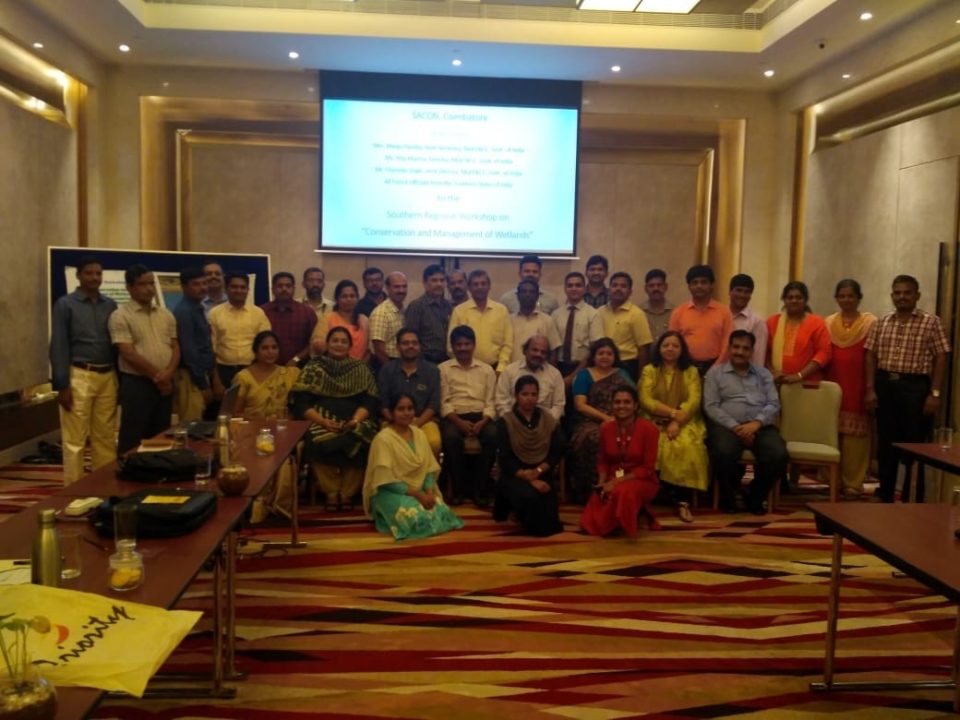
Building Capacity of Wetlands Managers of Southern Indian States
-
Integrated management planning
-
Integrating wetlands in water management
Wetlands management cuts across disciplines, sectors and stakeholders. Building the capacity of wetlands managers is therefore crucial for ensuring that wetlands are managed sustainably. Wetlands International South Asia is working with the Wetlands Division of the Ministry of Environment, Forest and Climate Change to train government officials entrusted with the management of wetlands in application of best practices and integrated approaches.
The second regional capacity development workshop for wetlands managers of Southern Indian states was organised by the Ministry on September 6-7, 2018 at Coimbatore. The workshop was attended by wetlands managers from Tamil Nadu, Karnataka, Kerala, Andhra Pradesh, Telangana and Puducherry. Dr Ritesh Kumar (Conservation Programme Manager, Wetlands International South Asia) introduced the concept of integrated wetlands management planning to the participants and elucidated best practices in design and implementation of management plans. Prof E J James (Former Vice Chancellor, Karunya University and Governing Body member, Wetlands International South Asia) talked about the need for integrating wetlands in water management planning and decision-making. Dr S. Balachandran (Bombay Natural History Society) conducted a session on managing wetlands as waterbird habitats. Dr Goldin Quadros (Salim Ali Center for Ornithology) outlined a monitoring strategy for assessing wetlands ecosystem health. Ms Manju Pandey (Joint Secretary, MoEFCC ) chaired the workshop.

Presentation from the State Governments representatives indicated that significant emphasis is being placed on implementing the provisions of Wetlands (Conservation and Management) Rules, 2017, and developing integrated management plans for critical sites. The need for having detailed guidance on wetlands delineation, defining a zone of influence, and assessing management effectiveness was reiterated by the managers.
On the second day of the workshop, the participants visited two tanks of Tirupur, Tamil Nadu. Practical demonstration of wetlands delineation, defining hydrological regime linkages and assessing ecosystem health was done by the resource persons.
Capacity development workshops, such as the one held at Coimbatore are significant engagement and learning opportunities for wetland managers and policy planners to support conservation and integrated management of wetlands in the country. The recent floods of Kerala have put a question mark on development planning which is highly dependent on built infrastructure and fails to account for the role of wetlands in the landscape.
